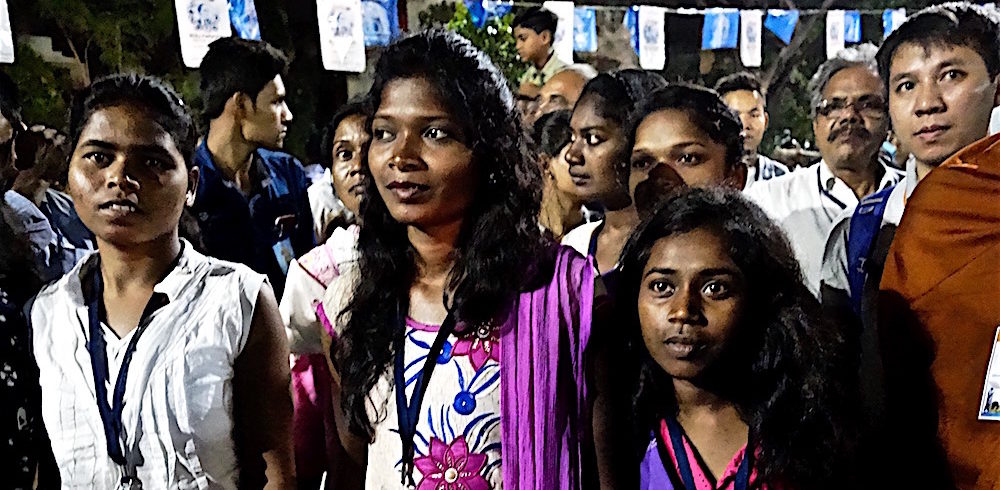Posted on January 20, 2011 by Alan Senauke
Justice in the Long Halls: Jarvis Masters’ Hearing — Day 8
Today’s hearing was uneventful, which is not necessarily bad. There were not a lot of us in attendance — about 14 or 15. And a smaller crew of corrections officers guarding Jarvis. A lot of the questions and answers were difficult to hear. It seems to me the air conditioning system is getting louder.
Witness 1 was a law enforcement officer, now retired. Much of his career was spent as an investigator for the Marin district attorney’s office, where he interviewed witnesses, and did other tasks supporting the prosecution. He began working with the d.a. on the Burchfield case in 1985, shortly after the murder. In time he became the chief investigator, after his previous superior had been removed from the case.
It was a tedious and frustrating morning as this witness was examined by Chris Andrian, shown court documents he had signed while originally preparing the case, and the more recent deposition he had given to the Masters’ team. Most of the questions had to do with his office’s relationship with the key informants who testified against Jarvis. Questions also probed at what this witness and the prosecution knew about a previous witness’s status (see day 2 of this blog) as the prime suspect in a 1988 San Francisco murder, gang-related, but unconnected to the Burchfield attack. Today’s witness simply could not recall any of the pertinent details, even when reading from documents that he had either written himself or given in deposition, and even after acknowledging that he had reviewed his own extensive files on the Burchfield investigation before this testimony.
His memory was much improved on cross-examination by Ms. Luster from the A.G.’s office cross-examined. Nevertheless, the Masters’ team appeared satisfied by the morning’s session. There is a large body of documentation and other testimony undermining the informant this investigator worked with.
After lunch we were supposed to hear from a witness who had presented unsubstantiated testimony against Jarvis in the 1990 penalty phase of the Burchfield trial. I was amazed to learn that in a penalty phase, which could determine a death sentence, hearsay testimony could be offered about purported crimes that had never been reported, much less adjudicated. This particular witness has since recanted his penalty phase testimony, recanted his recantation, recanted the recantation of his recantation, and so on.
In chambers the judge, Masters’ team, and the Attorney General’s team agreed to submit the witness’s voluminous self-contradictory documents in lieu of his physical presence. I suspect we are all better off for this.
Meanwhile, the hearings are winding down. Tomorrow may be the last day of witnesses. As I’ve written earlier, there will be no “verdict” at the end of the hearings. I’ll try tomorrow to give you an overview of the what happens next.
— Alan Senauke

Alan: Thanks for writing about all this; it’s all so telling about the corrupting use of informers.
Do you think you could post an image of the outside of Wright’s Marin County Civic Center? I don’t think I’ve ever seen it. S.
See Day 9–today for photos.
Yes, the way they use informers is sordid and corrupting all around. Just listening to it all makes me want to take a bath.
See Day 9–today for photos.